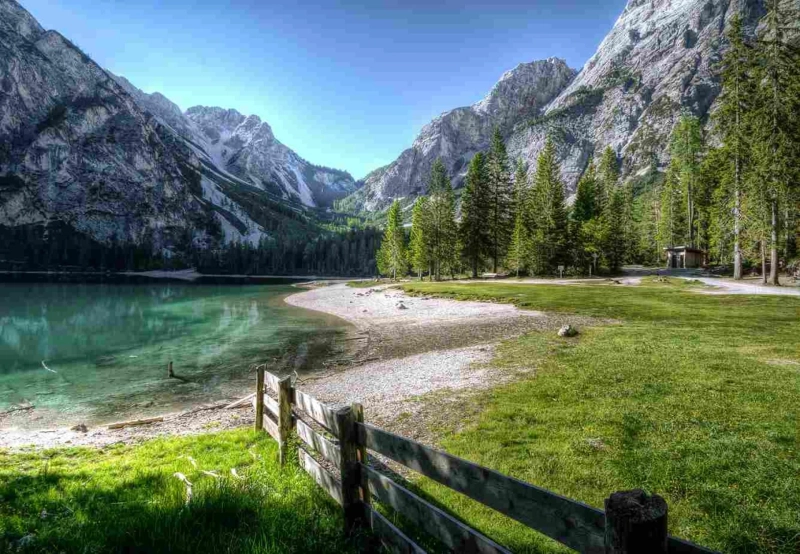The practice of safeguarding and preserving natural ecosystems, varieties of plants and animals, and earth's resources is referred to as nature conservation. The primary goal of nature conservation is to preserve biodiversity and guarantee resource sustainability while simultaneously tackling concerns such as habitat degradation, pollution, and climate change. This approach is critical for preserving ecological equilibrium and ensuring an adequate environment for generations to come.
Nature conservation events frequently are meant to inform the general population about matters related to the environment such as the value of biodiversity, the consequences of climate change, and the necessity for environmentally friendly lifestyle habits. People across the globe may be more environmentally conscious as a result of this refined awareness. These gatherings may promote a feeling associated with the community by bringing together people who have a shared interest in environmental protection. This can result in more collaborative environmental initiatives and encourage local populations to take an active part in conserving their natural environment. Such events can assist to promote a better appreciation for the environment within cultural practices and beliefs by commemorating the natural world. In the long run, this may contribute to a stronger and enduring connection between humans and the natural world.
Community Clean-Up Drives
Involvement in community cleanup initiatives constitutes one of the simplest and most hands-on ways to wildlife protection. These activities bring participants from all walks of life around to clean up local parks, beaches, and forests. It's more than just cleaning up rubbish; it's an event that seeks to restore natural places and preserve their beauty for future generations to appreciate.
Wildlife Preservation Workshops
The care and protection of wildlife is an important part of nature conservation. Expert-led workshops give a glimpse into the lives of diverse animals, their habitats, and the problems they face. These events frequently involve participatory workshops in which guests acquire knowledge about local wildlife and how to help preserve it.
Tree Planting Ceremonies
Planting trees is both a symbolic and practical approach to help the environment. Tree planting assemblies are popular community activities in which people gather to plant seedlings. These events frequently feature educational presentations about the value of trees in our ecology, as well as guidance for effective tree planting and assistance.
Nature Walks and Educational Tours
Nature hikes and educational excursions are excellent ways to see the splendor of nature personally. These organized trips tend to concentrate on local flora and animals, informing participants about biodiversity in their local region and the necessity of maintaining these treasures of nature.
Art and Nature
Themed paint by numbers add a unique twist to artistic activities at wildlife conservation programs. During the holiday season, Christmas paint by numbers is a popular activity, encouraging participants to create festive sceneries with natural components. Likewise, Hawaii paint by numbers provides a tropical retreat while capturing the spirit of island species and surroundings. Paint by numbers cat initiatives allow animal enthusiasts to produce art influenced by the elegance and beauty of felines, bringing attention to the diverse species and their habitats. Furthermore, skull paint by numbers may be utilized to delve further into nature's mysteries, concentrating on the anatomy and symbolism of many species. These various themes not only serve a wide range of interests, but they also serve as a peaceful and creative approach to promote awareness of the beauty of nature and the need for its preservation.
Sustainable Living Workshops
Nature protection and sustainable living are inextricably linked. Sustainable practices workshops educate registrants how to lower the impact of carbon emissions. Recycling, composting, sustainable gardening, and energy saving practices are all important for environmental protection.
Reflecting on the variety of environmental conservation events, it is clear that their effect goes well beyond the local activities. These gatherings are about more than just planting trees, cleaning beaches, and learning about animals. They are a significant step toward a more sustainable future, forging a stronger bond between communities and the environment.
The positive impacts of such gatherings are numerous. For initial reasons, they play an important role in developing a sense of environmental responsibility. These activities put climate change and habitat devastation into the public thinking, advising and stirring up action. Nature conservation activities encourage public engagement and involvement. They give a platform for people from all walks of life to come together for a shared cause, developing a feeling of community and collective responsibility. This collective effort not only contributes to instantaneous positive environmental impacts but also fosters a culture of sustainability.
Finally, ecological preservation events play an important role in guiding society toward a more viable and ecologically conscious future. Their advantages are numerous, ranging from public education and community building to directly supporting ecological conservation and restoration. As we continue to face environmental difficulties, the significance of these events grows, reminding us of our responsibility and willingness to effect constructive change for our world.


